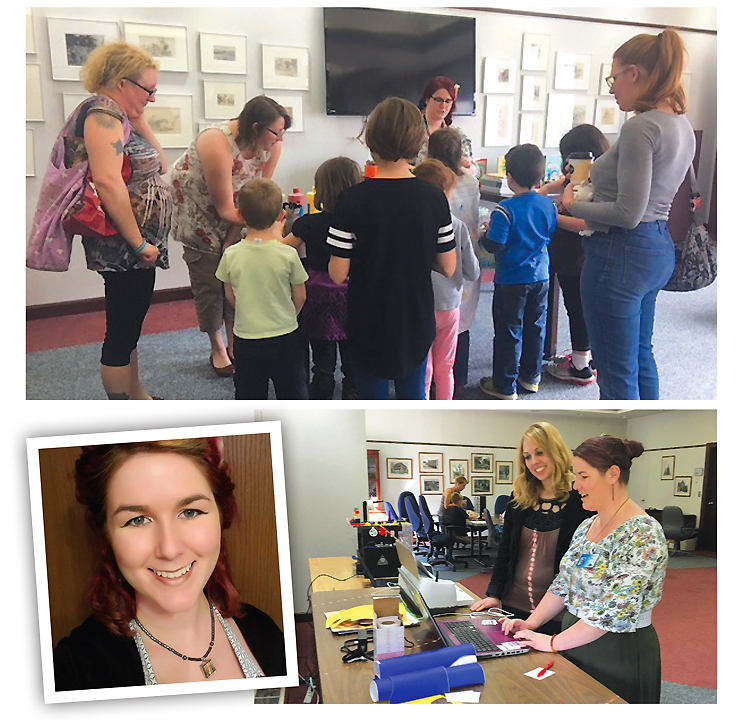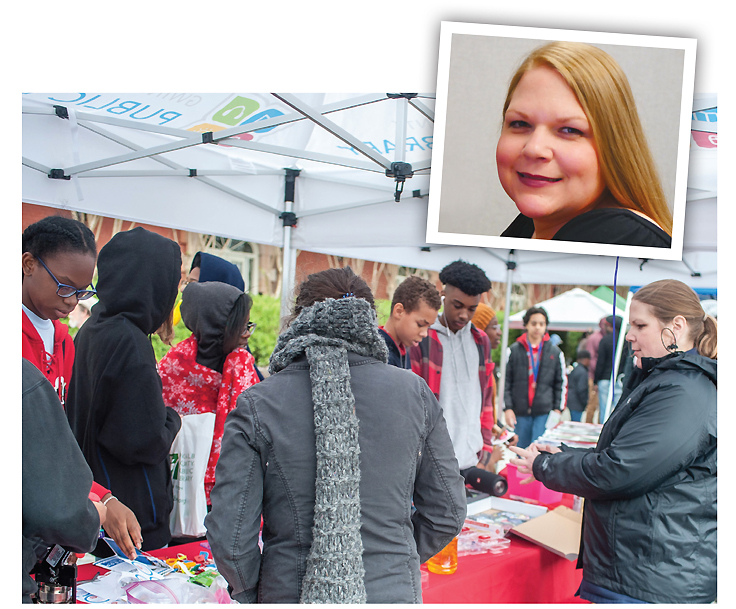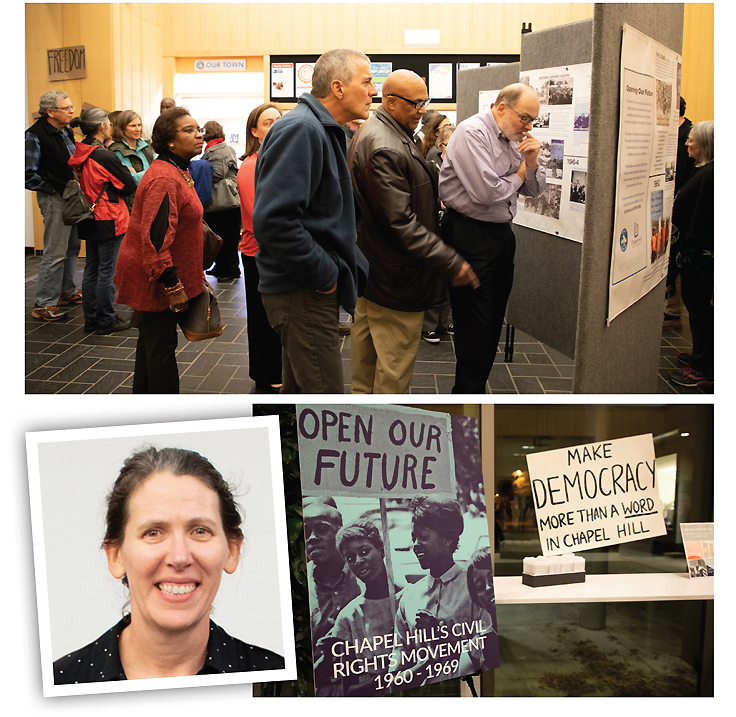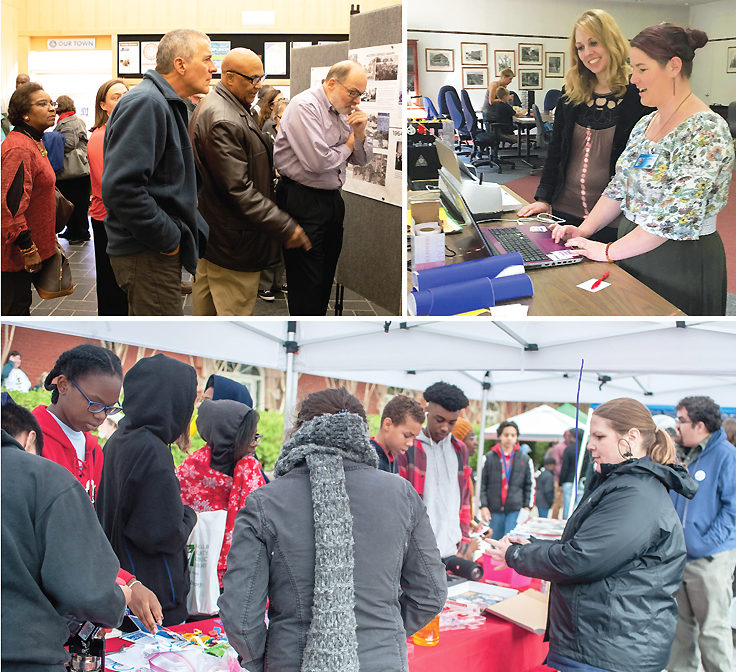Next Gen Librarians | LIS and Careers
There will always be a place in libraries for people to fill traditional roles in programming, collection development, and working with children or teens. But many recent graduates earning their MLS (or equivalent degree) have learned new competencies that are increasingly in demand.
Recent graduates find five evolving LIS roles that didn’t exist a decade ago
There will always be a place in libraries for people to fill traditional roles in programming, collection development, and working with children or teens. But many recent graduates earning their MLS (or equivalent degree) have learned new competencies that are increasingly in demand. It benefits LIS students to be nimble and proficient in Maker space technologies, data management, and business expertise. At the same time, a growing emphasis on STEAM (science, technology, engineering, arts, and mathematics) education means that new degree earners are emerging with new skills.
MAKER LIBRARIANS AND STEAM LIAISONS
“I didn’t even know being a Maker space librarian could be a designated position!” says Claire Tidwell, Maker space and programming librarian at the Irvin L. Young Memorial Library, Whitewater, WI. Tidwell, who earned her MLIS from the University of Wisconsin, Madison, in 2018, focused her studies on youth services. While STEAM learning is becoming a mainstay of K–12 education, Tidwell finds that she mainly works with adults and families, rather than with children alone. “All ages can learn from a 3-D printer or Snap circuits, and everyone can have fun doing a craft that is secretly teaching you the basics of coding,” she says. “Creating job positions that are solely Maker space centered, rather than being a youth services librarian who runs the space, means you have someone on your team who is dedicated to interacting with all ages and assessing their needs as makers,” says Tidwell.
 |
MAKING IT UP AS SHE GOES ALONG Claire Tidwell (inset) from the Irvin L. Young Memorial Library, Whitewater, WI, is explicitly a Maker space librarian rather than a youth librarian, enabling her to work with adults and families with a mix of ages, not just kids and teens. Photos courtesy of Irvin L. Young Memorial Library |
Tidwell doesn’t know anyone else with her job title, although LJ’s Placements & Salaries survey (p.32-33) suggests this may not be the case for long. Respondents identified job titles that include a directive for a degree of developing and caring for Maker spaces, such as a special collections and digital projects assistant who works “primarily with our makerspace, 3D modeling, and VR;” a library and technology guide whose focus is on “existing and emerging technology;” and a school librarian media specialist with a library that is “evolving into a hub where students learn to collaborate using technology to produce a final product.”
Tonya Aumack, learning labs supervisor for Gwinnett County Public Library (GCPL), GA, says that while her MLIS classes from the University of Alabama’s Tuscaloosa online program “were not directly related to Maker spaces and their technologies,” she does find the broad foundational understanding of library services for all ages, including access to technology, to be very useful in her role. “I learned about the social impact of our changing technological world,” she explains. Aumack, who was promoted to her supervisor role while still enrolled in graduate school, took courses in project management and data visualization software—both relevant to the hard skills of being a department head.
Now Aumack oversees four learning labs in the GCPL system, with five more on track for completion. She supervises the staff of each lab, who provide outreach, programming, training, and one-on-one patron assistance. She also orders (and repairs!) the various tools used in the labs. “Based on the growing popularity of our learning labs, I don’t see the need for STEM/Maker space/emerging technologies librarians decreasing,” she says. “Who will ensure that there is a level playing field for all in our society when it comes to technology, if libraries do not take up this role?”
Of course, STEM-centered librarianship is also a mainstay of academia, but these days it may look very different from the collection development focus of years past. Jodi Coalter, life sciences librarian at the University of Maryland, College Park, acts as STEM liaison librarian to a number of science departments at once. “Several courses and professors guided me toward STEM librarianship,” Coulter says of her Wayne State University MLIS program. One of her favorite classes was an introduction to health and e-Science, during which she learned about the tools required to support collaborative science. “Just reading the material for that course made me giddy with joy!” Coalter says. “A librarian told me relatively early on in my education that science librarianship was going to disappear, but after taking this class I realized that was absolutely not true, and I could easily build a career by helping scientists find, create, and communicate information.”
To stay relevant, Coalter says, STEM and science librarians must “immerse ourselves in [the world of science]” as well as “do a much better job of letting scientists know what we actually do.” Funding for increased STEM librarian positions will be a tipping point in the evolution of this particular sector. Advocating for library services “can be hard and tiring work, and it never ends,” she says, “But it’s so worth it, particularly when many of our presidents and provosts, the people who control the money, come from STEM-heavy backgrounds.”
MASTERS OF DATA
Data curation, data management, and data visualization duties are a strong trend in LJ’s placement survey. A primary function of Brianna Doyle’s role as a learning commons librarian at Central Maine Community College, Auburn, is to “collect, input, analyze, and report on data regarding circulation, interlibrary loan, web usage, tutoring services, instruction sessions taught, space utilization, etc.” A 2018 MLIS graduate of Simmons University in Boston, Doyle concentrated on information science and technology courses that taught her programming languages and database and knowledge management skills. “There will always be a need for someone to interpret the data in ways that are uncomplicated,” Doyle says. “The crossover to [librarianship] seems natural, especially since what we do on a daily basis is interpret information for our patrons and guide them to what is most important and/or useful. We are no longer gatekeepers, but more like guides.”
Jo Klein, geographic information system (GIS) and data visualization librarian at the University of North Carolina (UNC) Greensboro, provides “consultations on data discovery, use, and management as well as GIS tools and software.” They also instruct students on how to use information literacy tools, and provide data visualization support and services to university staff. Klein received their MLIS from UNC Greensboro, where courses in digital librarianship, metadata, and archival practices “gave me a better understanding of where a specialized role like mine fits in the library.” Additional coursework in library management gave Klein the background they needed to establish a position in the UNC libraries that is completely new to the institution. While this is an emerging job title, Klein is working with other data visualization librarians as part of Visualizing the Future Symposia, an IMLS-funded forum that will explore the future of this work through “the development and dissemination of a framework for data visualization support in libraries and related institutions,” according to the forum’s website.
 |
FAIRE PLAY Tonya Aumack (inset) from Gwinnett County PL, GA, oversees the library’s Maker Faire 2018 as well as four learning labs and their staff and equipment. Photos courtesy of Gwinnett County PL |
CONNECTING IT WITH LIBRARY SERVICES
Business analyst positions in libraries and in the private sector are a growing specialization. “I do think it is an emerging trend for MLS/MLIS grads to transition into the tech world,” says Ellen Cope, a 2018 MLIS graduate of Wayne State University, MI, who is now a business analyst at Employ Intelligence, a tech company. “[LIS students] are given a background that perfectly prepares us for the type of role I fill. Typical tech degrees teach you only about how useful data can be and the best ways to use it,” she says. “Because LIS is so user- and community-oriented, I feel that we receive a different perspective.” User privacy is an area that Cope believes needs attention. “The LIS degree was really valuable for me to learn information management and user privacy laws,” she says.
Cope, who had planned to enter the tech sector upon earning her degree, was initially “a little confused as to why I was forced into so many straight librarianship courses. However, by the end I had a complete change.... l am a better business analyst for my library courses.”
Erin Nettifee works as an IT business analyst for Duke University Libraries, NC. A participant in the FOLIO project, which is centered on developing an open source library services platform, Duke Libraries hired three new business analysts to work in conjunction with a software developer. “The idea is that we would bridge IT and library departments, with each analyst focusing on a distinct area: cataloging, circulation, or acquisitions. We would work with the library staff in each area to conduct user interviews, understand functional/business requirements, develop user stories and test cases, conduct testing, and be part of software deployment,” says Nettifee.
Her MLIS from the University of Washington’s iSchool “helps me work with librarians and understand the type of work they do, and respect how much knowledge it can take to do those jobs well.” While the group projects that were part of the curriculum may not have been her favorite, they did “reinforce the idea that library work is not done in a vacuum.”
OUTWARD FACING
Public librarians have traditionally found themselves separated into technical services and collections or public services, and from there they often specialize in one age group or another. LJ’s survey reveals a new type of professional title: public relations librarian, who works with social media to engage library users; community engagement specialist, who develops strategic partnerships and collaborations; and user experience librarian, who utilizes market research to tell library stories.
Molly Luby, special projects coordinator for the Chapel Hill Public Library (CHPL), NC, focuses her work on “human- centered design thinking to co-create community -driven programs and initiatives.” She is currently at work on projects that will “document and share Chapel Hill’s community history from the inside out and the bottom up,” in conjunction with a local government task force. Luby has also been involved with co-designing new programs and services for teens, demonstrating that this new brand of librarianship has broad applications across interests and ages served. “What I love best about libraries—and public libraries in particular—is the community and relationship building at the heart of the work,” she says. “Libraries are finding new ways to authentically engage people and connect with their communities on real issues that impact their lives.”
 |
CROWDSOURCED HISTORY Molly Luby (inset) focuses on co-creating community-driven projects at the Chapel Hill Public Library, such as the local history exhibit shown. Photos courtesy of Chapel Hill PL |
Luby, also a graduate of UNC Greensboro, found that the MLIS program broadened her tech skills and gave her the necessary philosophical underpinnings of librarianship, even if she didn’t necessarily envision her master’s degree leading to her current position—a brand new one at CHPL.
Cheri Ebisu, program coordinator for the University of Hawai’i’s LIS program, has seen her graduates find jobs with this type of community focus in both public and academic settings. “Our program has stepped up its offerings in courses on community engagement, digital instruction, and learning resources,” says Ebisu, with the goal of preparing students for work in this developing sector.
As librarianship fully enters the crossroads of technology, access, and community driven services, these emerging positions demonstrate new skill sets in combination with traditional LIS expertise. The evolution of LIS instruction will not only help librarians find jobs they hadn’t envisioned when they started out, but will enable libraries and other organizations that hire librarians to stay current and human-centered—a quality that is critical to combatting the unintended consequences and dehumanizing forces of algorithm-based tech products and services.
RELATED
ALREADY A SUBSCRIBER? LOG IN
We are currently offering this content for free. Sign up now to activate your personal profile, where you can save articles for future viewing










Add Comment :-
Comment Policy:
Comment should not be empty !!!